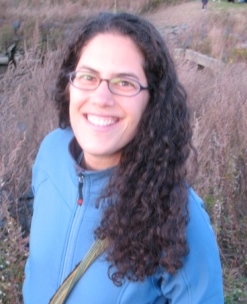Leora Mallach

Beantown Jewish Gardens (Ganei Beantown) is building community through experiential food and agriculture education rooted in Jewish text, tradition, and culture. Historical frameworks, tradition, and ancestors’ stories offer guidance for our contemporary community in our respect for each other, as well as the resources and systems that support us.
The points made in the first chapter of Jewish Megatrends, regarding the desire for people to connect on a more grassroots level, resonates most with the work we do. New paradigms are being created, both within long standing institutions and in addition to them. As we have seen, populations and priorities in greater Boston shift, and shift again. The agility needed to stay relevant in this landscape is often found within the grassroots, in the weeds. Like wetlands, whose levels ebb and flow with the tide, so to must community infrastructures be responsive to the needs of its people.
As an organization, we often partner with established Jewish institutions and organizations, thereby utilizing current structures to establish focused programing around a potential area of interest and help build a stronger sense of whole. Partnerships provide the opportunity for our expertise to shine, as well as forge connections between Jewish community groups and their local sustainability initiatives. Our entry point to that community might be via clergy, lay-leaders, education staff or general members looking to make change. Such diversity of entry-points reflects the depth of potential for our community engagement.
We are simultaneously building new entry points into Jewish life through our programing at local gardens and community farms. Such work on “neutral” ground allows for connections with like-minded or like-seeking others, as well as educational opportunities. In these situations, the barriers for engagement tend to be geographic in nature and opportunities for connection across differences abound.
The work we do brings people together as network weavers. At our workshops we utilize the common language of food and the natural world to engage attendees and build connections. Like our food system, we are all connected, and our decisions have an impact on others. That we present current environmental paradigms within a Jewish perspective is sometimes new to participants, while simultaneously providing the ability to engage with others they might not otherwise come into contact with. This mingling of folks from various Jewish organizations and age cohorts allows for innovative and creative ideas and collaborations to flourish. Sharing of stories beyond the usual suspects breathes new life into Jewish tradition, community, identity, and actions.
The educational work we do around creating a sustainable food system resonates with people as they are (hopefully) eating and interacting with it on a daily basis. There is real-world substance to build upon. In discussions of sourcing ethically and consuming responsibility, we are nourishing our bodies and our spirits. When we get our hands and bodies engaged in the process, in the fields or the kitchen, we deepen the learning. As Jews, we have a context for ethical eating. Whether or not we choose to follow a halakhic understanding of kashrut, if we have learned that kashrut exists, we have context for principled eating to build upon. To catalyze such conversation in the Jewish community challenges us to go deeper and makes us stronger together.
Further, the Beantown Jewish Gardens office is hosted at a social impact Co-working space in downtown Boston, and engagement in the local entrepreneurial community has provided rich learning opportunities and resource sharing. While Jewish incubators and entrepreneur supports do exist, they are often national in scale, or local fledgling efforts. Such interactions and associations allow both sides to learn from each other, and model the interplay of ideas and comingling we are promoting.
By utilizing the methods of the other trends mentioned in the book, Tzedek (Social Justice), Chochmah (Wisdom), and Kedushah (Lives of Sacred Purpose), we engage the Jewish community in the question of how to feed ourselves and the world in a just and sustainable manner. The variety of modalities in our root cellar includes consultation work, educational programing (both one time and series), text study opportunities, cooking and kitchen sessions, farm work, holiday gatherings, gleaning and waste reduction programs, and more.
Building community takes time, energy and a collective will. We are sowing the seeds for future generations.
__________________________
Leora Mallach is an experiential learner at heart and educator by training. The co-founder and director of Ganei Beantown in greater Boston, along the way she has led month long backpacking trips for teenagers, lived and traveled abroad, created a batik art business, worked in an auto-garage, gear shop and on a farm, embarked on numerous kitchen experiments, developing a taste for olives and a love of tea, built gardens at schools and synagogues, bought a house and never stopped being amazed at the wonders of the natural world.


